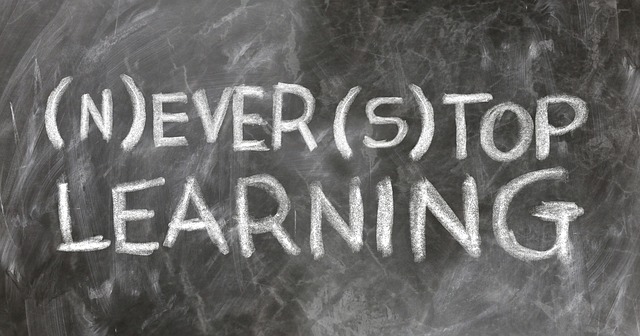The Importance of Emotional Resilience in Personal Growth
Emotional resilience is a vital component of personal growth. It refers to our ability to cope with stress, adversity, and challenging situations. Think of it as a buffer that helps us navigate life’s inevitable ups and downs. When we face difficulties, emotional resilience enables us to bounce back and learn from these experiences. This ability not only influences our mental well-being but also affects how we pursue and achieve our goals in personal development.
As we delve into emotional resilience, we need to understand its foundations. Strong emotional resilience helps us maintain a positive outlook, even during tough times. It allows us to see challenges as opportunities for growth rather than insurmountable obstacles. Many people underestimate the significance of cultivating this skill. By prioritizing emotional resilience, we open ourselves up to more profound personal growth experiences. It’s not merely about coping; it’s about thriving in the face of adversity.
Now, let’s examine how emotional resilience affects personal growth. When we cultivate emotional resilience, we become more adaptable. This adaptability is crucial in personal development. Life is full of surprises, from job changes to relationship shifts. Those with greater resilience can navigate these changes more smoothly. They exhibit a willingness to embrace new experiences, knowing they have the tools to handle whatever life throws at them. This approach fosters a mindset geared towards continuous improvement, a cornerstone of personal growth.
Building Blocks of Emotional Resilience
What exactly does it take to build emotional resilience? Several key components contribute to this complex quality. One fundamental aspect is self-awareness. When individuals understand their emotions, they can better manage them. Reflecting on feelings and identifying triggers can significantly enhance our emotional responses. Utilizing techniques like journaling can be immensely helpful. It allows us to explore our thoughts deeply and recognize patterns in our emotional reactions.
Another crucial element is having a strong support system. Connecting with friends, family, or mentors provides a network of encouragement during difficult times. These relationships foster a sense of belonging and community, which can significantly impact emotional stability. Moreover, seeking out positive influences can inspire us to maintain resilience. It’s essential to surround ourselves with those who encourage growth and positivity; this sets a strong foundation for personal development.
Additionally, practicing self-care and stress-management techniques greatly bolster emotional resilience. Exercise, mindfulness, and healthy eating nurture our mental and physical well-being. They equip us to handle life’s challenges with a clear mind and strong body. Learning to manage stress effectively helps prevent feelings of overwhelm and burnout, making it much easier to bounce back from adversity. Remember, emotional resilience doesn’t mean we don’t feel stress; it simply means we know how to handle it and recover more swiftly.
Strategies to Enhance Emotional Resilience
Enhancing emotional resilience is a proactive process. Firstly, adopting a growth mindset is crucial. This mindset encourages individuals to see failures as learning opportunities rather than setbacks. When we view struggles as part of the journey, we create space for growth. Embracing challenges with this attitude becomes easier, paving the way for continuous personal development.
Moreover, practicing gratitude can significantly improve emotional resilience. Regularly acknowledging what we appreciate in our lives shifts our focus from negativity to positivity. Keeping a gratitude journal, for instance, can be an effective way to cultivate a more positive outlook. This practice reinforces our sense of well-being, providing us with the energy needed to face difficulties with fortitude.
Another powerful strategy is setting realistic goals. When we have clear, achievable objectives, we build confidence in our abilities to succeed. Break larger goals into smaller, manageable steps to prevent feelings of being overwhelmed, which can diminish resilience. Every small victory contributes to our sense of accomplishment and provides motivation to keep moving forward. This method of structuring our aspirations creates a pathway for growth, making the journey feel less daunting.
Overcoming Setbacks Through Emotional Resilience
Adversity is an unavoidable part of life, but how we respond to setbacks defines our path toward personal growth. Emotional resilience equips us with the tools to navigate these challenges effectively. Embracing setbacks as learning experiences allows us to transform disappointments into opportunities for self-improvement. Understanding that failure does not define our worth is crucial; rather, it’s the lessons we glean from these experiences that foster progress.
Furthermore, developing problem-solving skills enhances our capacity for resilience. When we encounter obstacles, approaching them systematically allows us to maintain composure and find solutions. Rather than succumbing to despair, we can evaluate the situation objectively and make strategic decisions. This practice cultivates a sense of control over our lives, promoting further emotional strength and depth in personal development.
Resilience also involves healthy emotional expression. Bottling up feelings can lead to increased stress and anxiety. Learning to articulate our emotions, whether through conversation, creative outlets, or therapeutic practices, fosters a healthier emotional landscape. By processing our feelings, we prevent them from festering, which helps us move forward positively. Encouraging open emotional expression nurtures resilience, enhancing our ability to deal with future challenges.
The Role of Mindfulness and Emotional Awareness
Mindfulness plays an instrumental role in fostering emotional resilience. This practice helps us remain present and aware of our thoughts and emotions without judgment. By utilizing mindfulness techniques such as meditation or deep-breathing exercises, we can cultivate greater emotional self-regulation. Developing this awareness allows us to identify negative thought patterns and break free from their influence, ultimately enhancing our resilience.
Moreover, emotional awareness contributes significantly to resilience. When we become attuned to our feelings, we develop a clearer understanding of what affects our emotional state. This understanding enables us to respond more effectively to stressors. By recognizing what triggers our emotions, we can implement strategies to mitigate those effects. This proactive approach makes navigating difficult situations more manageable.
Incorporating mindfulness into daily routines, such as setting aside time for reflection, can amplify the benefits. This consistent practice enhances emotional clarity and reduces anxiety, which bolsters resilience. Ultimately, the combination of emotional awareness and mindfulness leads to deeper connections with ourselves, fostering not only resilience but significant personal growth as well.
Long-term Benefits of Emotional Resilience
Building emotional resilience not only impacts our immediate personal growth but also offers long-term benefits. Individuals with strong emotional resilience tend to experience improved mental health, showing lower levels of anxiety and depression. These long-term benefits translate to a more fulfilling life experience. We experience deeper relationships, greater satisfaction at work, and a heightened sense of overall well-being.
Additionally, emotional resilience supports physical health. Stress can wreak havoc on the body, leading to various health issues. However, resilient individuals often employ stress-management techniques that protect their physical health, too. A clear connection exists between mental and physical well-being. Thus, by nurturing emotional resilience, we inadvertently contribute to a healthier lifestyle in the long run.
Moreover, resilient individuals are often seen as leaders. Their ability to navigate challenges effectively and promote positivity inspires those around them. This leadership extends beyond formal roles; it permeates everyday interactions. The qualities of resilience, adaptability, and positivity create a ripple effect, empowering others to cultivate similar traits. This growing support system strengthens communities and enhances collective growth.
Final Thoughts on Emotional Resilience and Personal Development
In conclusion, emotional resilience plays a pivotal role in personal growth and development. Its influence includes not only our ability to cope with challenges but also our capacity to thrive in adversity. By focusing on strengthening our resilience through self-awareness, support systems, and proactive strategies, we unlock tremendous potential for growth.
As we continue this journey of personal development, let us remember that the path is often not smooth. We will face hardships, but with resilience, we can turn these trials into transformative experiences. Cultivating this quality empowers us to embrace change, enhance our well-being, and ultimately lead richer, more fulfilling lives.
Frequently Asked Questions (FAQ)
What is emotional resilience?
Emotional resilience is the ability to cope with stress and adversity while maintaining a positive outlook. It allows individuals to bounce back from challenges and learn from their experiences.
How can I improve my emotional resilience?
You can improve emotional resilience by practicing self-awareness, cultivating a strong support system, engaging in self-care, maintaining a growth mindset, and adopting mindfulness techniques.
Why is emotional resilience important for personal growth?
Emotional resilience is crucial for personal growth because it helps individuals navigate challenges, embrace change, learn from setbacks, and maintain a positive outlook, all of which foster continuous development.
Can emotional resilience be learned or developed?
Yes, emotional resilience can be developed through practice and experiences. Strategies like mindfulness, problem-solving skills, and self-reflection contribute to building resilience over time.
What role does mindfulness play in emotional resilience?
Mindfulness enhances emotional resilience by promoting present-moment awareness, reducing stress, and fostering emotional regulation. It allows individuals to manage their emotions effectively and maintain a clearer perspective during challenging times.



